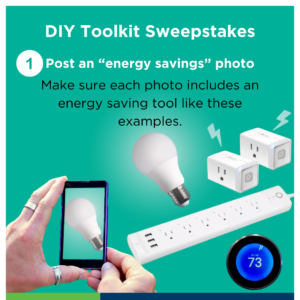
Heat Pump Water Heaters 101: A Comprehensive Guide for Silicon Valley Clean Energy Customers
To address Silicon Valley’s air pollution caused by fossil fuels, transitioning to efficient, electric equipment is increasingly important. One of the changes you can make in your home to improve air quality and community emissions is the installation of an electric heat pump water heater — an efficient and cost-effective way to heat water.
- Energy Savings: Use less energy to heat water and can be scheduled to operate during off-peak hours, maximizing savings with time-of-use rates.
- Rebates and Tax Savings: Cheaper than, or competitive with, polluting gas water heaters.
- Precise Temperature Control: Accurately set and maintain the desired water temperature, ensuring optimal comfort and efficiency.
- Healthier and Safer: Cuts 50% of your home’s greenhouse gas emissions.
What is a Heat Pump Water Heater?
A heat pump water heater is an energy-efficient appliance that uses electricity to heat water. Unlike traditional water heaters that generate heat through gas combustion or electric resistance, heat pump water heaters transfer heat from the air to heat the water. This process enables them to be two to three times more energy-efficient than conventional water heaters.
How Do Heat Pump Water Heaters Work?
Heat pump water heaters operate using a refrigeration cycle, similar to how a refrigerator works but in reverse. They extract heat from the surrounding air and transfer it to the water in the tank. This process involves three main components: the evaporator, compressor, and condenser.
- Evaporator: The evaporator absorbs heat from the air, even in cooler temperatures.
- Compressor: The compressor increases the temperature of the absorbed heat.
- Condenser: The condenser transfers the heat to the water in the tank.
How Much Does a Water Heater Installation Cost?
The cost of a Heat Pump Water Heater can vary significantly based on the model and installation requirements. For a typical 3-bedroom home, a 65 to 80 gallon water heater tank is recommended, with an average cost ranging from $1,800 to $2,800. Additional installation costs, including labor and permitting fees, can add between $4,300 to $6,500 when replacing a gas water heater. The average total project costs for customers in the SVCE service area are around $5,000 to $7,000. We recommend getting several quotes from licensed contractors—the SVCE Assisted Home Upgrades tool can help you request free quotes from multiple contractors.
How Can Heat Pump Water Heaters Help Me Save?
There are many available rebates and incentives that help bring the cost down to being at parity with gas water heaters. The long-term savings on energy bills make them an even more cost-effective option, especially when paired with the E-ELEC rate or EV-2 rate for electricity discounts. Increase savings by adopting best practices like setting your heat pump to run during off-peak hours when electricity rates are low. Heat pump users can expect to save approximately $200 or more annually.
What Rebates and Financial Incentives Are Available for Heat Pump Water Heaters?
From do-it-yourself to done-for-you, Silicon Valley Clean Energy (SVCE) offers rebates and services you need to upgrade your home with high-efficiency electric appliances. You can receive up to $3,000 in SVCE rebates for a heat pump water heater, which are fully stackable with other available federal, state, and local incentives.
Options for Upgrading to a Heat Pump Water Heater:
Option 1: DIY or Contractor Installation. If you already have a contractor or prefer to install a heat pump water heater yourself, reserve your rebate and claim your reimbursement through the SVCE Home Rebates program.
Option 2: Need Help Finding a Contractor or Quotes? If you need assistance in finding a contractor and stacking rebates, use the free SVCE Assisted Home Upgrades tool. This free service allows you to request project quotes from multiple contractors and apply for all eligible rebates with a single application—all in one convenient place.
Option 3: Emergency Replacement. Broken water heater and need an emergency replacement? Services such as the SVCE Emergency Water Heater Replacement Program offers support for those in urgent need of a new water heating solution. Instead of a standard replacement, SVCE will help you upgrade to an energy-efficient heat pump water heater.
Where Can Heat Pump Water Heaters Be Installed?
Heat pump water heaters can be installed in various locations, including garages, laundry rooms, and utility closets. However, they require sufficient space and airflow to operate efficiently. For optimal performance, they should ideally be placed in areas with a temperature range of 40°F to 90°F. Additionally, as the heat pump operates, it expels cold air, which can enhance comfort in the surrounding space during warmer months.
Guide to Selecting the Best Heat Pump Water Heater
When selecting a heat pump water heater, consider the following factors:
- Capacity: Select a model that aligns with your household’s hot water requirements. Consider upsizing from your current tank to minimize the risk of running out of hot water during peak usage times, if your household is a high water user and optimizing operation at lower cost, off-peak times.
- Energy Efficiency: Look for a Uniform Energy Factor (UEF) of at least 3.3. This number represents how efficiently the unit operates: the higher the number, the less it will cost to heat water.
- Warranty: A longer warranty can provide peace of mind regarding your investment.
- 120 Volt HPWH: For homeowners with limited electrical capacity, a 120-volt HPWH can be an excellent alternative. These units are easier to install and can be plugged into standard outlets, making them a practical choice for many homes.
- Heat Pump Water Heater vs. Tankless Water Heater: While tankless water heaters offer on-demand hot water, they often lack the energy efficiency compared to heat pump water heaters and do not qualify for the same rebates. Additionally, tankless systems do not store a reserve of hot water, which means you could be left without hot water during a power outage, whereas heat pump water heaters will have a full pre-heated tank.
Heat Pump Water Heater vs. Gas Water Heater: What’s the Difference in Emissions?
Replacing the combustion of fossil gas (primarily methane) with clean electricity for your water heater removes a major source of dangerous and unhealthy Carbon Monoxide (CO) and Nitrogen Dioxide (NO2) from your home and surrounding environment.
With SVCE providing clean electricity for your home, switching to a heat pump water heater cuts nearly 50% of your home’s overall emissions.
Trade In Your Water Heater and Get up to $3,000 Cash Back
Imagine enjoying a nice hot shower, all while saving money and energy! By trading in your outdated gas water heater for an efficient electric model, you can get up to $3,000 cash back in the process. Be sure to explore your Home Upgrade options and connect with qualified contractors in your area to ensure a smooth installation process.
Get expert help from our dedicated Energy Advisors!
Discover the benefits of going electric, explore available incentives, and get personalized advice for your home or determining your future EV. Our team is here to help, free of charge, Monday-Friday, 9 a.m. – 5 p.m. PT (excluding holidays). Chat Now or call (833) 243-4235.






